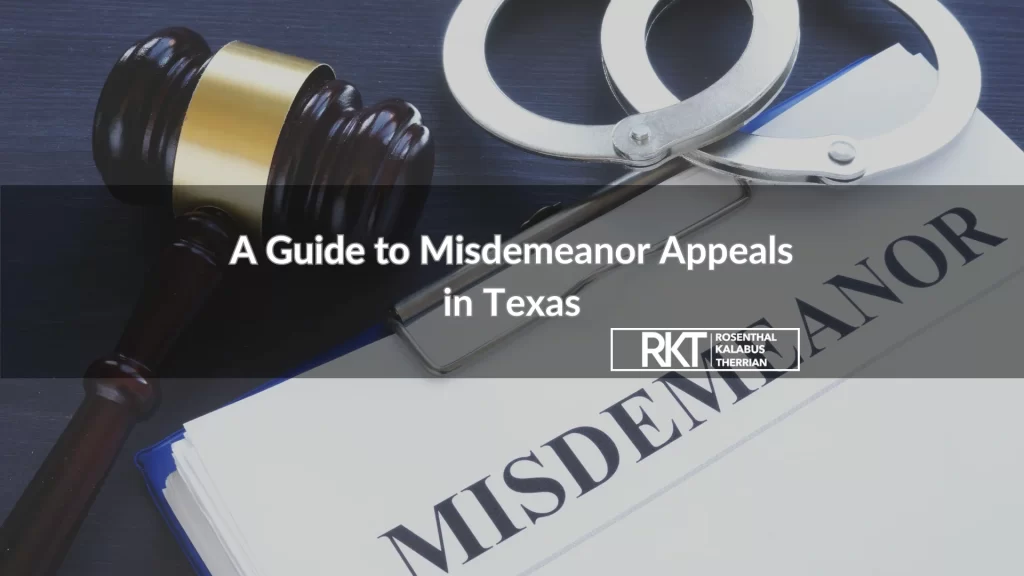
In Texas, misdemeanors are criminal offenses punishable by a fine or time in the county jail. It may be tempting to think that a misdemeanor conviction is not worth appealing because it isn’t serious enough.
But a misdemeanor conviction can be very serious. Any time in jail can be harmful and disruptive. Some misdemeanor convictions, like assault, family violence, or evading arrest, can turn the next charge into a felony. Others, like DWI, can become a felony after two or more previous convictions. A theft conviction can keep a person from serving on a jury or working in careers that involve money or other positions of trust. Some professional licenses can be suspended or revoked upon a misdemeanor conviction. Your driver’s license can be suspended.
The consequences of misdemeanor probation
Even misdemeanor probation can have a tremendous impact on a person’s life. Probation fees are expensive. A person may be required to attend classes that take time and money. They may have to have an ignition interlock installed on their car. They may have to perform hundreds of hours of community service.
An appeal may be your last real shot at avoiding these serious consequences. To appeal a misdemeanor, you’ll file a notice of appeal in the trial court within 30 days of the conviction or 90 days if you filed a motion for a new trial.
You may be released from jail when appealing a misdemeanor
The notice of appeal is very important. It gives one of the 14 courts of appeals in Texas jurisdiction to hear the appeal. But it has other valuable effects, too. First, any defendant sentenced to jail for a misdemeanor is entitled to be released on bail while the appeal is pending. Second, if a defendant is placed on probation for a misdemeanor, the probation is stayed (meaning it doesn’t go into effect) while the appeal is pending.
How misdemeanor appeals work

Once the notice of appeal is filed, the court clerk and the court reporter will file the record in the court of appeals. Once the record is filed, your appellate attorney will review the record to identify any reversible errors that happened in your trial. Examples of reversible errors include: the trial court should have suppressed evidence that was seized without a warrant. The trial court admitted evidence at trial that violated your constitutional rights. The trial court gave incorrect instructions to the jury. Another reversible issue is that the evidence may be legally insufficient to convict you. If the court of appeals decides the evidence is legally insufficient, the court will acquit you, and you can’t be retried.
Once the attorney identifies these issues, the attorney will file a brief in the court of appeals that explains why your conviction should be reversed. The State can file a response brief that argues why the conviction should be affirmed. Your attorney can file a reply brief that responds to the State’s arguments.
Once the briefs are filed, the case will be submitted to a panel of three justices. The justices will decide the case either based on the briefs or based on both the briefs and oral argument. Oral argument is an opportunity for your attorney and the prosecutor to discuss the case with the justices. They explain their arguments and answer the court’s questions.
What happens if a misdemeanor conviction is reversed?
If the court reverses the conviction, it will either remand for a new trial, or, if the evidence is insufficient, render a judgment of acquittal. If the court affirms the conviction, you can seek further review from the Court of Criminal Appeals by filing a petition for discretionary review.
Related posts
How Does an 11.07 Writ of Habeas Help a Convicted Person?
What Can I Expect After Expungement?
What is the Difference Between Deferred Adjudication and Straight Probation?